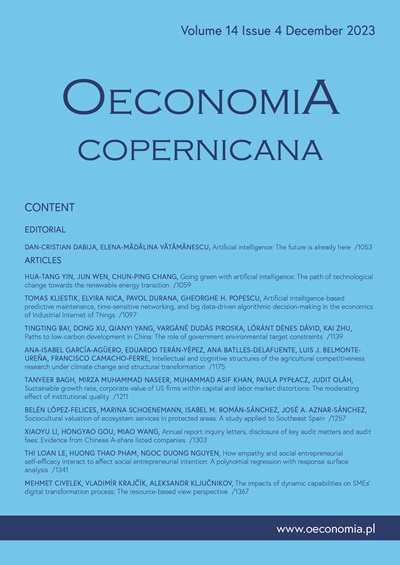命运和态度的变化:是什么决定了现代俄罗斯的政治信任?
IF 10.8
1区 经济学
Q1 ECONOMICS
引用次数: 2
摘要
研究背景:我们的指导思想是将政治信任与人们在财富等级中的感知等级、他们对他人的信心以及他们了解国内外事件的手段联系起来。文章目的:文章旨在从微观层面评估和分析主观福利、人际信任以及使用电视、广播或互联网搜索新闻的强度对俄罗斯四级政府政治信任的影响。方法:该研究基于欧洲复兴开发银行提供的转型期生活调查的微观数据。根据《哥白尼经济学》,12(1),77–98 78构建了序logit回归,评估了2010年和2016年测试和控制变量对俄罗斯总统、联邦、地区和地方政府政治信任的影响。调查结果和附加值:我们发现,在2010年至2016年间,俄罗斯政府高层的政治信任发生了逆转,当时感知福利水平的影响从积极变为消极。这一现象的解释是,联邦中心的政策重点是支持人口中的贫困群体,以及与商业的距离。相比之下,主观财富对下级政府信任的积极影响(尽管不一致)是由于企业可以从与地方当局的互动中获得好处。我们发现,受控制的电视和广播对权力高层的信任产生了积极影响,而更自由的互联网对地区和地方当局的政治信任也产生了负面影响。我们还证实了人际信任和政治信任之间存在积极而显著关系的假设,强调了社会资本的作用。最后,我们的研究表明,在俄罗斯等等级制度中,建立了维护政治信任的具体机制。它们与公众对政府不同部门的期望和要求的重新分配有关。所获得的结果适用于通过建立民主国家和公民社会来管理政治信任。本文章由计算机程序翻译,如有差异,请以英文原文为准。
Changing fortunes and attitudes: what determines the political trust in modern Russia?
Research background: We are guided by concepts linking political trust with the perceived rank of people in the wealth hierarchy, their confidence in other people, and the means they use to learn about events at home and abroad. Purpose of the article: The aim of the article is to assess and analyse at the micro level the impact of subjective welfare, interpersonal trust and the intensity of usage of television & radio or the Internet to search for news on political trust in four levels of Russian government. Methods: The study is based on microdata from the Life in Transition Surveys provided by the European Bank for Reconstruction and Development. Ordinal logit regressions are constructed to Oeconomia Copernicana, 12(1), 77–98 78 evaluate the impact of test and control variables on political trust in the Russian president, federal, regional, and local governments in 2010 and 2016. Findings & value added: We identify a reverse of political trust in the upper levels of the Russian government between 2010 and 2016, when the impact of perceived welfare level changes from positive to negative. This phenomenon is explained by the focus of the policy of the federal centre on sup-porting the poor groups of the population, as well as its distancing from business. In contrast, the positive, albeit inconsistent, effect of subjective wealth on trust in lower-level governments is due to the benefits that businesses can gain from interaction with local authorities. We find the positive impact of controlled television and radio on trust in the upper echelons of power, along with the negative impact of the freer Internet on political trust in regional and local authorities. We also confirm the hypothesis of a positive and significant relationship between interpersonal and political trust, highlighting the role of social capital. Finally, our research shows that in systems of the hierarchical type, such as Russia, specific mechanisms for maintaining political trust are established. They are associated with the redistribution of public expectations and claims to different branches of government. The results obtained are applicable for managing political trust through building a democratic state and civil society.
求助全文
通过发布文献求助,成功后即可免费获取论文全文。
去求助
来源期刊

Oeconomia Copernicana
ECONOMICS-
CiteScore
13.70
自引率
5.90%
发文量
26
审稿时长
24 weeks
期刊介绍:
The Oeconomia Copernicana is an academic quarterly journal aimed at academicians, economic policymakers, and students studying finance, accounting, management, and economics. It publishes academic articles on contemporary issues in economics, finance, banking, accounting, and management from various research perspectives. The journal's mission is to publish advanced theoretical and empirical research that contributes to the development of these disciplines and has practical relevance. The journal encourages the use of various research methods, including falsification of conventional understanding, theory building through inductive or qualitative research, first empirical testing of theories, meta-analysis with theoretical implications, constructive replication, and a combination of qualitative, quantitative, field, laboratory, and meta-analytic approaches. While the journal prioritizes comprehensive manuscripts that include methodological-based theoretical and empirical research with implications for policymaking, it also welcomes submissions focused solely on theory or methodology.
 求助内容:
求助内容: 应助结果提醒方式:
应助结果提醒方式:


